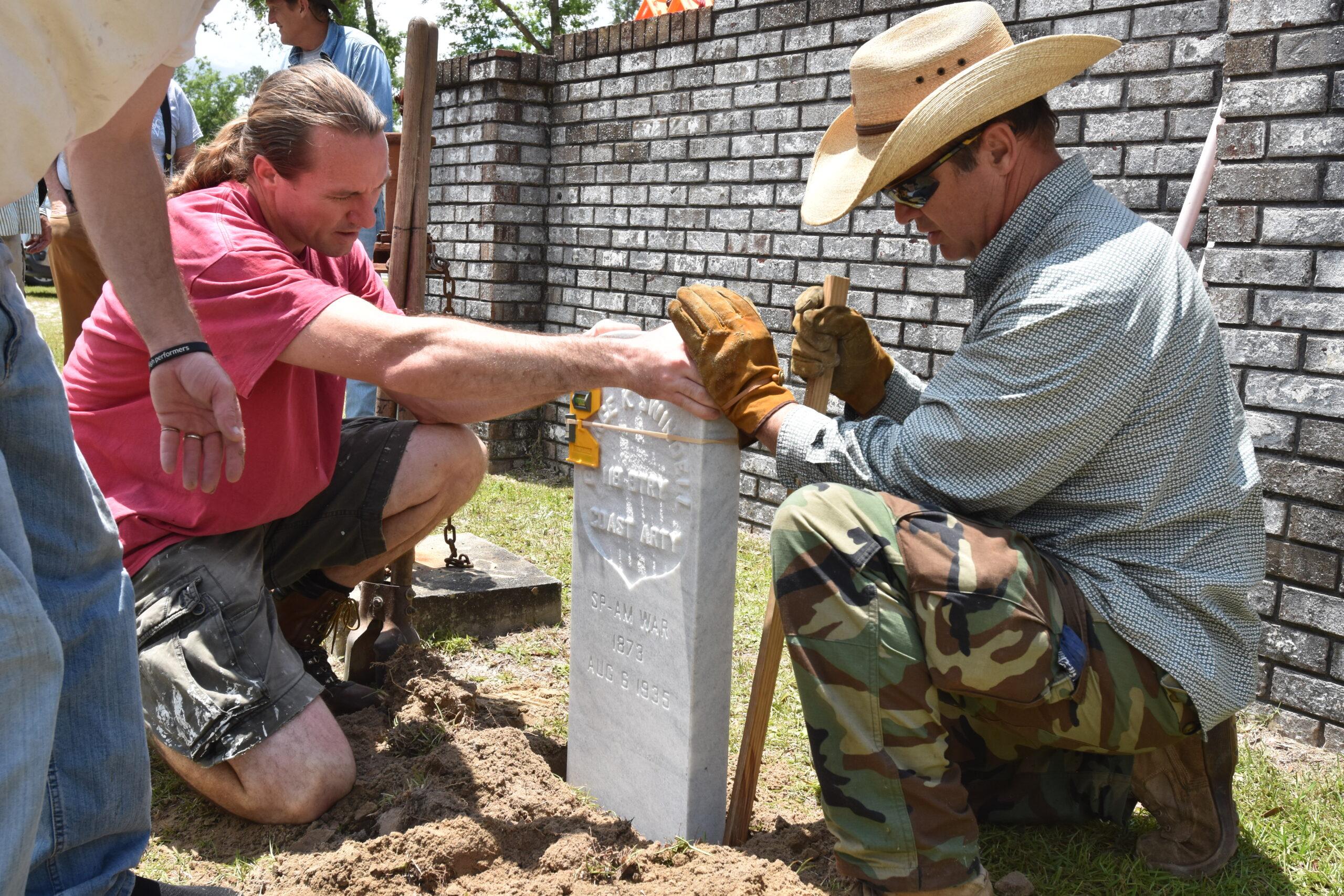Forgotten Wewahitchka graves dedicated with new gravestones
George K. Swindell had only been in Gulf County for one year when the tent where he was living was struck by lightning in 1935, tragically killing him and his three dogs.
He had moved to the Wewahitchka area during the height of the Great Depression, seeking work with local beekeepers. When he died, his body was buried in Roberts Cemetery, though the exact location of his grave, which was unmarked, would be lost to time.
That is, until a group of local historians gathered at the cemetery last week to place the Spanish-American War veteran’s headstone.
“We don’t know where exactly he was buried, but we know it was here in this cemetery,” said Donnie Miller, a member of the Sons of Confederate Veterans who helped to secure Swindell’s new gravestone from the federal government.
“What I’m wondering is just how did he end up here? The newspaper said he came here from Huntsville, Alabama. I guess we will never know all that, but at least now people will be able to see where he died and that he served this country.”
The Spanish-American War, which was fought in 1898, resulted in Cuba’s independence from Spain. It resulted in thousands of casualties, most of whom died due to disease, not battlefield injuries.
But Swindell, who was 25 when the war took place, lived another three decades before his death in Wewahitchka.
It’s these types of stories that local historians, together under the Wewahitchka HIstorical Society, are working to preserve.
“It’s important for us to remember and respect those who lived here before us,” said Ann Johnson, the historical society’s president. “Otherwise, we might forget them, their strengths and their problems.”
Local members of the Sons of Confederate Veterans have been working with the historical society to secure gravestones for veterans like Swindell who are buried in unmarked or damaged graves in the area.
Last Monday, headstones were also placed at both Roberts Cemetery and Jehu Cemetery for individuals who fought with the Confederate States of America during the Civil War.
The headstones were provided free of cost by the federal government, who are required by law to provide veterans with gravestones, including ones for those who fought with the Confederacy.
Moving forward, Johnson said that along with working to secure more headstones for unmarked graves around town, the Historical Society has plans to restore the historic Iola Cemetery, which is located north of Wewahitchka in a densely wooded area where the historic town that would later become Wewahitchka once sat.


Meet the Editor
David Adlerstein, The Apalachicola Times’ digital editor, started with the news outlet in January 2002 as a reporter.
Prior to then, David Adlerstein began as a newspaperman with a small Boston weekly, after graduating magna cum laude from Brandeis University in Waltham, Massachusetts. He later edited the weekly Bellville Times, and as business reporter for the daily Marion Star, both not far from his hometown of Columbus, Ohio.
In 1995, he moved to South Florida, and worked as a business reporter and editor of Medical Business newspaper. In Jan. 2002, he began with the Apalachicola Times, first as reporter and later as editor, and in Oct. 2020, also began editing the Port St. Joe Star.